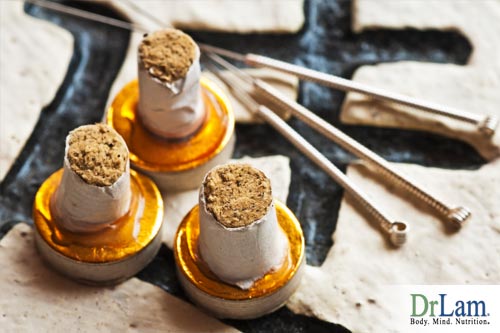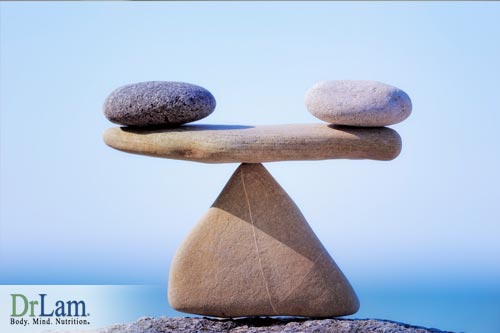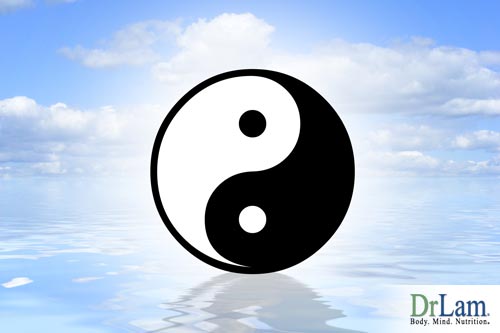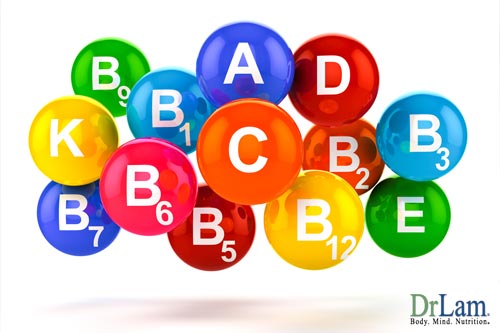 Traditional Chinese Medicine (TCM) originated in ancient China more than 2,500 years ago and is based on the principle that human life is a balance of wellness and harmony. In theory and practice, traditional Chinese medicine, including TCM acupuncture, is completely different from Western medicine, both in terms of considering how the human body works and how illness occurs and should be treated. The benefits of acupuncture impact many systems of the body, including the nervous system. The use of TCM acupuncture for Adrenal Fatigue has shown great results.
Traditional Chinese Medicine (TCM) originated in ancient China more than 2,500 years ago and is based on the principle that human life is a balance of wellness and harmony. In theory and practice, traditional Chinese medicine, including TCM acupuncture, is completely different from Western medicine, both in terms of considering how the human body works and how illness occurs and should be treated. The benefits of acupuncture impact many systems of the body, including the nervous system. The use of TCM acupuncture for Adrenal Fatigue has shown great results.
Two concepts that are unique and fundamental to TCM are Qi (internal vital energy) and yin and yang (the harmony of all the opposite elements and forces that make up existence). These two concepts form what we might call the roots of Chinese medicine. The Chinese concept of Qi (pronounced chee) is that there is an invincible life force that spontaneously flows freely throughout the body through the Five Elements – Wood, Fire, Earth, Metal, and Water—each representing a distinct quality of the Qi energy that is vital to the continual good health and flow of nature. TCM asserts that Qi is weakened or blocked when a person is ill. Specifically, the illness is a result of the blockage, rather than the blockage being the result of the illness. The theory of yin and yang states that the two opposites inherent in every object or phenomena in the universe, counterbalance each other; and that one enjoys good health when yin and yang are in balance but when they are out of sync, one becomes sick. TCM asserts that a balance of the opposing forces of yin and yang is necessary for a healthy life and disease arises when they are not. Finally, TCM practitioners believe in curing the root of a disease and not merely in treating its symptoms.
TCM is a broad term encompassing many different modalities and traditions of healing including TCM acupuncture, acupressure, dietary adjustment, qi gong (movements or postures to generate qi), moxibustion (burning an herb above the skin inside a closed container to transmit heat to acupuncture points), herbal medicine, and tui na (Chinese therapeutic tissue massage).
Compared to Western allopathic medicine, TCM places little emphasis on gross anatomical structure, but is mainly concerned with identification of functional entities such as breathing, digestion, and energy flow.
Good health is seen as a harmonious interaction of these entities within the body and with the outside world. Disease or illness is a result of disharmony. As mentioned before the key is therefore to re-balance the two opposing but complementary energy forces: yin and yang. When yin and yang are balanced, a disease-free healthy body exists. The benefits of acupuncture, qi gong, and other TCM approaches are viewed as aligning the body, increasing energy flow, and balancing the energies of the body.
The TCM diagnostic process traces symptoms to certain patterns of underlying disharmony. This is done by physical examination of palms, inspection of the tongue, palpation of the pulse characteristics, observation of skin tone and eyes, and examining the eating and sleeping habits in relation to other systems.
 Acupuncture can therefore be seen as a mechanical way to activate the body’s internal energy or de-qi which in turn, automatically travels through the ECM network to locate pathological areas of dysfunction and initiates spontaneous self-healing. Because the ECM is all encompassing within the body, a complete TCM acupuncture program would necessarily involve the whole body. Research into the benefits of acupuncture have shown to have a positive effect on many systems of the body. Intense and frequent acupuncture sessions addressing different parts of the body are required for optimum healing over months if a systemic change is desired. This can be considered by those who are healthy or in mild adrenal fatigue. Those who are weak or in advance stages of AFS fare quite differently. Their ECM is usually congested. Intense sessions can trigger adrenal crashes, fatigue, and anxiety.
Acupuncture can therefore be seen as a mechanical way to activate the body’s internal energy or de-qi which in turn, automatically travels through the ECM network to locate pathological areas of dysfunction and initiates spontaneous self-healing. Because the ECM is all encompassing within the body, a complete TCM acupuncture program would necessarily involve the whole body. Research into the benefits of acupuncture have shown to have a positive effect on many systems of the body. Intense and frequent acupuncture sessions addressing different parts of the body are required for optimum healing over months if a systemic change is desired. This can be considered by those who are healthy or in mild adrenal fatigue. Those who are weak or in advance stages of AFS fare quite differently. Their ECM is usually congested. Intense sessions can trigger adrenal crashes, fatigue, and anxiety.
The benefits of acupuncture occur over time. A single organ focused acupuncture treatment approach carried out once a week for a few weeks usually only yields temporary relief at best and seldom leads to long-term healing. However, the benefit of acupuncture is in alleviating some symptoms while other treatments, such as diet changes and nutritional supplementation, are implemented. In this way, the greatest benefit of acupuncture is relief — even if short-lived — while other treatments have time to begin working. Other benefits of acupuncture include reducing stress and its effect on the body, decreasing anxiety, and increasing a greater sense of well being.
For Traditional Chinese Medicine, there is no specific element or system in the body that is tied into the adrenal gland itself. The adrenal gland is part of the water elements. It is related to the kidney Qi because it physically sits on top of the kidneys. The kidney area is seen as a key organ that determines the quality of life because the kidneys control the internal Qi, and thus regulates the yin and yang balance.
From the TCM perspective, Adrenal Fatigue Syndrome (AFS), chronic fatigue, depression, low thyroid function, reduced sexual function, can all be seen as the kidneys yang deficiency state. To address this, TCM focuses on ways to warm the kidneys by increasing yang Qi. This can include acupuncture, acupressure, and herbal remedies. Dietary recommendations include avoiding cold foods and liquids, sugar, and antibiotics.
From the Western medicine perspective, the way to stimulate more energy flow from the adrenal glands involves increasing the basal metabolic rate of the body and hormonal production from the adrenals. Compounds used include hydrocortisone, testosterone, DHEA, and pregnenolone, and thyroid medications, to name a few. The goal is to facilitate a higher energy flow in order to overcome fatigue.
The concept of energy flow is foreign to allopathic medicine. The closest equivalent would be to view the yang force as excitatory, driven by anabolic hormones such as testosterone and estrogen, along with stimulatory neurotransmitters including adrenaline and norepinephrine-mediated by the sympathetic nervous system. On the other hand, the opposing yin force is calming in nature, mediated by the parasympathetic nervous system and its neurotransmitter acetylcholine.
 AFS at its core represents the body’s neuroendocrine response to stress from the Western medicine perspective. In the early stages of AFS, the adrenal glands are able to put out more cortisol, the main anti-stress hormone. As a result, cortisol output goes up. Looking from the TCM perspective, the kidney’s normal balance between yang and yin force becomes biased towards a state of yang-dominance in the early stages of AFS. To put it simply, the increase in cortisol output is somewhat analogous to an increase in yang forces.
AFS at its core represents the body’s neuroendocrine response to stress from the Western medicine perspective. In the early stages of AFS, the adrenal glands are able to put out more cortisol, the main anti-stress hormone. As a result, cortisol output goes up. Looking from the TCM perspective, the kidney’s normal balance between yang and yin force becomes biased towards a state of yang-dominance in the early stages of AFS. To put it simply, the increase in cortisol output is somewhat analogous to an increase in yang forces.
If stress continues unabated beyond the body’s internal handling capability, AFS progresses to more advanced stages. Here, cortisol output ultimately reaches its peak and starts falling as the adrenal glands become exhausted. A state of cortisol depletion then sets in.From the TCM perspective, yin force excessiveness becomes the dominant backdrop as the body becomes depleted of the once dominant yang force.
Simplistically, TCM looks upon AFS as a condition where supplementation of the qi is necessary to up-regulate or boost the kidney system. Western medicine looks at AFS as deficient in cortisol, and thus the use of anabolic and stimulating hormones is indicated. Both TCM and Western medicine, therefore, see excitation of the adrenal glands as the route to AFS recovery regardless of the severity of AFS. The road to recovery is simple: increase energy flow.
The more fatigue is clinically presented the more aggressively this approach is advocated. As a result, the more severe the weakness, the more TCM acupuncture treatment is prescribed by the TCM practitioner. Similarly, the Western-trained physician when faced with unexplained extreme fatigue prescribes more hormones such as thyroid, testosterone, pregnenolone and DHEA.
Without dissecting Adrenal Fatigue Syndrome into various stages and treating each stage uniquely, the danger of continuous and unrelenting stimulation of the adrenal glands by both TCM and allopathic physicians can cause more harm than good over time. This approach can push the body well beyond what it can physiologically handle while the underlying stressor remains. Those who are already weak are at the most risk.
Over excitation can lead to a state of wired and tired. Anxiety increases throughout the day, and insomnia becomes unbearable at night. Without good sleep fatigue gets worse, and a vicious downward cycle gathers steam. The body then activates the alarm response, triggering numerous paradoxical (opposing) reactions, where any attempt at healing will elicit the opposite effect. Calming nutritional supplements may become excitatory. Sleep medications can produce a state of alertness. The final cascade of decompensation can lead to frequent adrenal crashes where the sufferer is ultimately incapacitated.
Let us see how this happens.
 The body is an intricate complicated machine with a wonderful self-regulating system. It is very much like a car, which only runs when the gas tank is filled with fuel or gasoline. When the body is starved of food and sleep, it will not be able to function and carry out many important life functions This is why many people sleep more and go on an eating binge when they are under great stress. Healthy Qi from TCM acupuncture therapy will often help the body replenish its fuel reserves.
The body is an intricate complicated machine with a wonderful self-regulating system. It is very much like a car, which only runs when the gas tank is filled with fuel or gasoline. When the body is starved of food and sleep, it will not be able to function and carry out many important life functions This is why many people sleep more and go on an eating binge when they are under great stress. Healthy Qi from TCM acupuncture therapy will often help the body replenish its fuel reserves.
Everyday stressors will generally drain the body’s energy and nutritional reserves so that when the reserve is low, the body will experience a breakdown and great fatigue. With TCM acupuncture therapy, the body continues to experience a never-ending cycle of drain and replenishment of its internal reserves. Healthy and young individuals who are able to eat a nutritious diet and have adequate sleep seem to do the best with acupuncture therapy. Those young adults in the early stages of Adrenal Fatigue Syndrome, who only suffer from mild fatigue, often experience an intense sense of well-being and increased energy flow after each acupuncture session. They will often notice improved mental focus and can sleep better than before. It may appear that TCM acupuncture therapy does really help these young adults refill their energy reserves and return them to a life of calm and serenity.
 Unfortunately, acupuncture does not work for everyone all the time. For some people, there is no real improvement in their health after an acupuncture session. As a matter of fact, some will be even more tired after acupuncture, forcing them to retire early in the day and go to sleep well before their usual bedtime.
Unfortunately, acupuncture does not work for everyone all the time. For some people, there is no real improvement in their health after an acupuncture session. As a matter of fact, some will be even more tired after acupuncture, forcing them to retire early in the day and go to sleep well before their usual bedtime.
For some people, after an acupuncture session, they become lightheaded when they stand up too quickly. Some will feel tired after acupuncture. Some can be compelled to eat every two to three hours to avoid symptoms of hypoglycemia. In the worst-case scenario, some will become very unproductive and unable to hold down a regular job to earn a living for themselves and their families.
Even with more administered acupuncture sessions, things do not always improve for some people while they continue to experience chronic fatigue. For these people, health issues have become worse than before they started acupuncture. Eventually, things will become so bad they become bed-ridden most of the time and are not able to go to work.
If you feel drained, fatigued, and tired after acupuncture and things do not seem to improve after twenty-four hours, then be aware acupuncture may not be helpful and may even be weakening your body and worsening your condition.
Why do some people feel better with acupuncture, but others feel worse? The simple answer is that everyone’s internal body composition is different. If one has a high level of internal reserve at the time of acupuncture treatment, one may feel a bit better. However, if one’s reserve is low, then the amount of Qi being restored by an acupuncture session may not be sufficient to re-charge the body to a sufficiently high level and as a result, the body quickly runs out of fuel again and starts to put out a full neuroendocrine alert in the form of unpleasant symptoms such as nausea, fatigue, and anxiety. For these people, acupuncture treatment may help for a short time but eventually, they fall back into their original state of extreme tiredness.
With chronic activation of the body’s alarm response, the body will further drain itself of its remaining limited energy reserves until finally, the body signals in no uncertain terms that it will not be able to tolerate any more acupuncture treatment. Fatigue would worsen the moment acupuncture is administered.
In addition to worsening fatigue, a common undesirable symptom post acupuncture session is non-specific dullness or discomfort in the adrenal area, even though there are no physical somatic nerve innervations into the adrenal glands. Western medicine has no explanation for the origin of such discomfort.
Other symptoms that are associated include leg weakness, tinnitus, lightheadedness on rising, dizziness, nausea, stomach cramps, constipation, night sweats (especially in the middle of the night), inability to fall asleep, sleep maintenance insomnia, joint pain, and burning sensations in the feet and palms.
In women, menstrual periods become irregular. Hot flashes can become prominent. The central nervous system may be involved, with symptoms such as anxiety and a sense of being wired and tired after acupuncture are the most common.
On physical examination by the Traditional Chinese Medicine (TCM) practitioner or acupuncturist, little to no abnormality is detectable for those in mild or early stages of Adrenal Fatigue Syndrome (AFS) as the yang forces are dominant. Skin tone is good, blood flow is strong, and pulse is regular and strong, though a bit fast at rest. Strong yang is present.
As Adrenal Fatigue Syndrome becomes severe and unresolved, worsening fatigue after acupuncture session is experienced, the tongue is seen as pale, swollen and wet; and the pulse is deep but weak, and may be irregular. This is consistent with kidney yang depletion as the body transitions into a state of yin dominance.
In Western medicine, post acupuncture fatigue can be seen as the consequences of excessive toxin release, liver congestion, or excessive excitation of the sympathetic nervous system alarm response mentioned previously. Increased fatigue is the end result of a body down regulating its neuroendocrine system as AFS progresses. The body’s response is to slow down all the organ systems to conserve energy as it signals its rejection of acupuncture as appropriate for your body.
 Traditional Chinese Medicine is a great tool for reaching deep into the body and effecting balance for those who are healthy or in a very mild form of AFS bought on by stress. With acupuncture, for example, opening up the meridian and re-establishing clear energy flow can reduce fatigue dramatically and lead to a sense of well-being. Unfortunately, this is often short-lived, unless the underlying root stressors are removed. In other words, this approach is at best symptom patching rather than attacking the root cause.
Traditional Chinese Medicine is a great tool for reaching deep into the body and effecting balance for those who are healthy or in a very mild form of AFS bought on by stress. With acupuncture, for example, opening up the meridian and re-establishing clear energy flow can reduce fatigue dramatically and lead to a sense of well-being. Unfortunately, this is often short-lived, unless the underlying root stressors are removed. In other words, this approach is at best symptom patching rather than attacking the root cause.
Chinese herbs, such as schizandra berries, and Ayurvedic herbs, such as holy basil and ashwagandha, work along the same lines. A prescription is usually given concurrently for these herbs, as they tend to increase energy flow. Some possess adaptogenic properties.
In early stages of AFS, many are misled by the temporary improvement of energy from such compounds, along with acupuncture treatment, into thinking that the root problem is resolved. Unfortunately, this is not necessarily so.
Unless the underlying stressor is removed and the adrenal glands are properly and gently nurtured back to a point where they have enough nutritional reserve to facilitate the self-healing mechanism, simply enhancing energy flow is like trying to whip a tired horse into running further.
Over time, a reduction in marginal response is common. The body gets used to such therapy and develops resistance. More acupuncture sessions and more herbs are needed to generate the same response. This is similar to developing tolerance to medications over time, requiring an ever-larger dose.
As Adrenal Fatigue Syndrome progresses and advances to the more advanced stages where weakness becomes more pronounced, acupuncture and TCM seldom work, but may in fact backfire and worsen the condition. This is a time when the body is weak and internally decompensated. Further acupuncture stimulation may be too much for the body to handle, triggering numerous paradoxical reactions, feeling tired after acupuncture, and hypersensitivities to food, temperature, and supplements. Adrenal crash prevalence increases.
It is common for many who have advanced AFS to report more fatigue and crashes immediately or soon after having acupuncture or taking herbs. Not knowing why, the sufferer thinks that the acupuncture session is not strong enough because it had worked well before when the AFS was mild. Not realizing that the body is now weaker, more sessions are demanded. The body is then subjected to more. This further weakens a body that is already low in energy reserves, and the sufferer is left feeling extremely tired after acupuncture.
The weaker the body, the more the sufferer is at risk with such kidney yang boosting techniques. In the Western world, the use of medication, sauna, sunbathing, deep tissue massage, hot yoga, hot baths, and steam baths can all generate a similar undesirable response often seeming to defy conventional medical logic. Their use in advanced cases of AFS should be curtailed unless under professional guidance.
Acupuncture and Traditional Chinese Medicine offer a different perspective on the approach for Adrenal Fatigue Syndrome recovery. The underlying concepts are surprisingly similar to Western allopathic medicine. TCM and acupuncture look at AFS as the lack of energy from the yang qi, regardless of the stage of AFS a sufferer is in. The solution is to boost this qi. While these have some benefits for those who have mild AFS, those who are in severe and advanced AFS usually do not fare well, and in fact could get worst relatively quickly with aggressive acupuncture or TCM treatments. Some AFS sufferers are left feeling more tired after acupuncture and sometimes an increase in AFS symptoms as well.
Western medicine focuses on symptoms control. For example, sleeping pills for insomnia, thyroid hormones for fatigue, testosterone to increase libido. When all these treatments fail, steroids and anti-depressants are prescribed, after which the sufferer is abandoned if complaints continue.
Both Western allopathic and Eastern approaches are less than ideal because they do not recognize that AFS is a continuum of neuroendocrine decompensating of a body crying for help when overloaded with stress. Different approaches are needed at different stages of the condition. A one size fits all approach by both Western and Eastern disciplines often lead to retarded recovery at best among those who are in advanced stages. Clinical recovery failure is the norm.
The best approach towards long-term successful recovery is to provide the adrenal glands with gentle non-stimulating nutrients to allow the adrenal system to self-heal. This nutritional approach is exactly what the body wants. We are constantly surprised at how fast and effective this is if you give the body only the right tools.
 For best results, start with rebuilding the body’s internal nutritional and energy reserves with gentle nutritional and lifestyle approaches fitting for the body, customized for every stage of AFS. This will help the body reach in to its own self-healing process, and offer the strongest likelihood for a successful recovery with the least risk of worsening the condition.
For best results, start with rebuilding the body’s internal nutritional and energy reserves with gentle nutritional and lifestyle approaches fitting for the body, customized for every stage of AFS. This will help the body reach in to its own self-healing process, and offer the strongest likelihood for a successful recovery with the least risk of worsening the condition.
Acupuncture as well as other TCM modalities should not be used until the body’s energy reserve is stable and the nutritional reserve is sufficiently strong. With this, any potential negative unintended side effects of acupuncture are minimized. The stronger the body, the more effective acupuncture can be. We do recommend Chinese herbs and acupuncture treatment, but only at the right time during the recovery process.
Determining when the body is strong enough to start acupuncture and TCM varies from person to person; so professional guidance is the key if one seeks to incorporate TCM into the AFS recovery plan. Any time you feel extremely tired after acupuncture or a worsening of symptoms, talk with your Primary Care Provider before proceeding.
The weaker your body, the higher the risk. You need to be careful because the body can be sensitive.